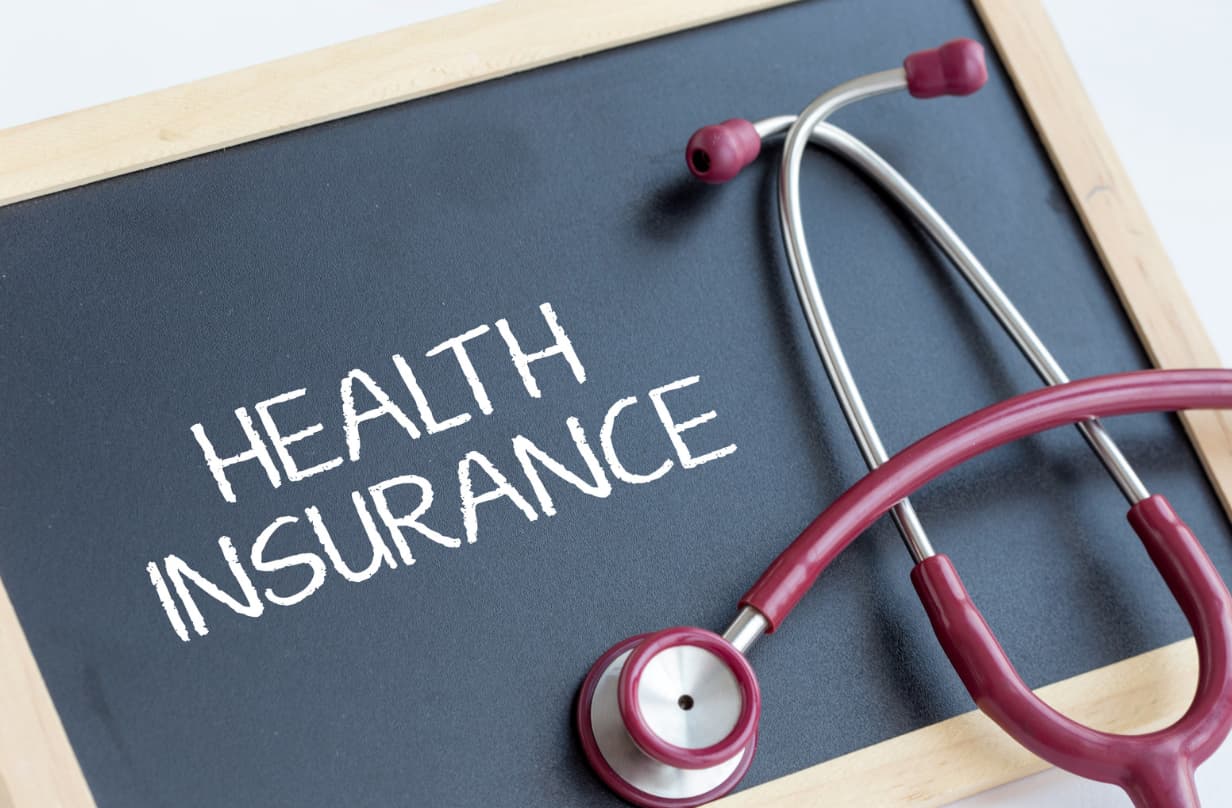The Secret Guide for Attorneys: How To Get More Personal Injury Cases
I’ll keep this simple and practical. So that you can start getting more personal injury cases than you know what to do with today. Right now you may be asking, “How do I get more personal injury cases?”.
Two words. Lead generation.
There are many ways to go about lead generation. Today I’ll cover:
1. SEO (search engine optimization)
2. PPC (pay-per-click)
3. Pay-per-call
I will break down the 3-step strategy any lawyer can do so that by the end of the article, you won’t need to waste any more time Googling “best personal injury ads” and watching YouTube SEO tutorials.
Make sure to read till the end to discover the action steps + a free resource :)
Let’s get started.
Step 1: Get Attention — SEO for Personal Injury Lawyers
You can’t get more cases if people never hear about who you are. Since Google is the most visited website on the planet, with 8.5 billion searches per day, it is a no-brainer to start with SEO.
Once you get how SEO works, you can blow past that one competitor whose billboard you always see on the way to your office. Here is a pyramid known as “Mozlows Hierarchy of SEO Needs”
Don’t get intimated, I will break it down for you step-by-step.
Bottom Level: Crawl Accessibility and Compelling Content
When you publish a piece of content on Google such as a website or a blog like this, the content will have specific phrases and keywords in your copy that match the search query of your future lead.
Google will index your content, and the next time someone searches “personal injury lawyer near me”, Google will try to match their search as accurately as possible.
They will use the location of the person and crawl through millions of personal injury lawyer websites to see who is closest to the lead, who has the best quality site, keywords, and fastest loading time.
Middle Level: Keyword Optimization, Great User Experience, Quality Content
As I’m writing this blog, I am incorporating phrases like “How to get more personal injury clients” and “lead generation personal injury”, to show Google who I want looking at this blog.
See, I just did it. Without these phrases, your website will be invisible to Google. But how did I find these phrases Google loves?
A Free and Easy Way To Find Keywords: MVA Lead Generation
To find key phrases like this, you will follow a simple process I did before writing this blog to ensure I had over 15 great keywords. It requires three things:
1. An electronic device
2. Google
3. A bit of creative thinking
Open a blank Google tab
This is ideal if you can do it on a blank profile, with minimal search data. Or just clear your Google history in settings. Now, you want to put yourself in the shoes of your ideal client.
Brainstorm
What would you be thinking if you recently got into a car accident and wanted a lawyer to represent you in court to potentially receive money?
Maybe it would be phrases like “ how to find a good personal injury attorney” or “ best personal injury lawyer near me”. Once you’ve typed the beginning of the phrase, DO NOT click search.
Instead, leverage Google’s search suggestions. It looks like this:
These are not random suggestions from Google. I am writing this from Los Angeles, and Google knows that. These are the most popular searches people type when looking for “ best personal inj…”.
Make your list
Let Google do the heavy lifting, try different keywords and phrases, rearrange sentences, use synonyms, and collect a list of the top search suggestions to use on your website.
You can double-check the keywords you’d like to use on ahrefs, it’s free. This tool lets you see the search volume and its competitiveness. This list is now your north star.
When optimizing your website through headlines, short copy, helpful blogs, or FAQs, you will embed these phrases into the copy. The next time Google crawls your site, your chances of showing up in front of the potential lead are much higher.
Remember, less than 1% of searchers click on the second page of Google, so it’s important to rank high. Now, let’s talk about the actual contents of your website.
Website Content
Make sure your landing page/website is as clear as possible. Keep the text to a minimum, including your face and the faces of your team (people love “About Us” pages), and a couple of high-quality images showcasing you at work. This builds trust between you and the lead.
Have your offer be the main attraction on your website.
Your lead should know exactly who you are and what you do when on your website. For example, as soon as you click resultcalls.com, our offer is there:
Make sure your office address and phone number are visible so leads can access you easily. That’s it. No need to overcomplicate things, less is more.
While these fundamentals are essential, creating a high-converting website requires more strategic planning and optimization. Discover how to build a personal injury website that gets leads for a comprehensive blueprint that turns visitors into qualified prospects through proven design and content strategies.
That was the SEO section. If you follow just the steps above, you will be miles ahead of everyone else. Now that all the ingredients are ready for our lead, let’s start cooking.
Step 2: How to Buy Personal Injury Leads — PPC For Lawyers
PPC or Pay-Per-Click is one of the best beginner strategies for attorney lead generation.
This is because you only pay for the clicks you get. Meaning, if your targeting is on point using the keyword strategy we discussed earlier, and your website is clean and simplistic, the lead has a much higher buying intent when searching for your business.
Beyond traditional PPC, Google offers another powerful advertising platform specifically designed for legal professionals. Explore the ultimate guide to Google LSA for personal injury lawyers to tap into Local Services Ads that can generate high-quality leads with enhanced credibility and lower competition.
Higher buying intent = higher conversions. It is the same strategy we use to get our clients thousands of calls per month from qualified leads.
This is not without its drawbacks, as in-feed advertising like Facebook ads can be cheaper, while Google PPC is more expensive but the leads are higher quality.
So how do we go about setting up a basic PPC campaign on Google? Once again, it comes down to keywords. Are you noticing a pattern?
What Are The 3 Different Types of Keywords In PPC Google Campaigns?
The 3 different types of Google keywords are:
1. Broad Match
2. Phrase Match
3. Exact Match
Broad match keywords are more general terms that someone searching may look up. They allow for more flexibility.
Phrase match keywords are more specific. Your keyword may be in between other terms but as long as the words are mentioned in the order you added, you may show up.
Here is the difference between broad match and phrase match keywords:
*The search term (personal injury lawyer) is our keyword in the PPC campaign in either broad or phrase match form. The search query is what people will be searching for.
Notice how for phrase match, our exact search term has to be somewhere in the search query. Whereas with broad, it can be synonyms, such as “attorney”. Exact match keywords are the most specific type.
This means your phrase has to match exactly what the searcher types in. No extra words and they have to be in the same order.
So using our example from the table above, someone would have to search “personal injury lawyer” or else you would not show up. But this begs the question, why don’t we always use broad match keywords? Wouldn’t this allow for a broader reach, so why would we limit ourselves to exact match?
Well, since PPC stands for Pay Per Click, we have to pay each time someone clicks on our website. If you only use broad-match keywords, you will end up paying loads of money for leads that are not yet ready to buy. This is why understanding the intent behind the search term is so important.
Managing PPC costs is just one aspect of lead cost optimization. Master how to get cheap personal injury leads and grow your firm faster to implement comprehensive strategies that lower your overall client acquisition costs while scaling your practice efficiently.
A keyword like “best personal injury lawyer near me” and “ should I get a personal injury lawyer?”, have completely different intentions. The former will most likely have a higher CPC (cost-per-click) because someone is ready to hire now. The ladder is a person who is not as deep into the funnel yet. They are scoping out their options.
Ideally, we would only use exact match keywords and hit big every time, with 100% accuracy so every click converts into a client. This, however, is not realistic, so we use a mix of broad, phrase, and exact match keywords to create a healthy, balanced, and optimized campaign.
I know it may seem like a lot, but for you to understand PPC we must go over one more pillar of knowledge. Negative keywords.
What Are Negative Keywords?
These are the same as broad, phrase, and exact match keywords with one big difference. Negative keywords are the phrases you DON’T want to show up for.
For example, if you don’t offer free services, you would add “free personal injury lawyer” as a broad negative keyword in your campaign, so your ad does not show up for anyone looking for free lawyer services.
Using negative keywords is a great way to lower ad costs and exclude “bad apple” leads. Leads that are irrelevant to what you offer. Once again put yourself in the shoes of your potential lead.
What is a popular search query that someone may look up that is related to our industry, but has nothing to do with you?
Think about if you want it to be broad, phrase, or exact match (maybe competitor names would be an exact match) and add these as negative keywords.
Phew, we’re almost done. Let’s get into the last step of our personal injury lead generation strategy.
Step 3: Outsource Ads For Personal Injury Lawyers
If the steps above feel like a lot to deal with, don’t worry, that’s because it is. Marketing for personal injury attorneys is not an easy task.
Even though we just went over some beginner-friendly strategies, lead generation can still feel like a full-time job. So what are some ways you can reduce the amount of time you spend trying to get leads and increase the time working on cases?
Outsource to a team of specialists.
This can be in the form of a freelancer hired on Fiverr or Upwork. You can also look into hiring a marketing agency that specializes in lead generation for personal injury attorneys.
Places like rankings.io (which specializes in SEO) and ResultCalls (pay-per-call model) work with personal injury attorneys to generate thousands of calls per month.
While digital marketing and outsourcing are powerful strategies, don't overlook one of the most cost-effective lead sources available to you. Learn how to get more personal injury cases using referrals to build a sustainable pipeline of high-quality clients who come pre-qualified through trusted recommendations.
When you decide to outsource, make sure to check past results from the agency or any case studies that may be up on their website. Pick someone who has proof of experience.
Having a team behind you that floods your calendar with potential cases is a cheat code in the law industry because you get to put all of your attention on your clients.
Conclusion
In this blog, I went over a few core strategies that you can implement to start generating personal injury leads today.
Things like SEO will always be important, so make sure you are finding high-ranking keywords using the free strategy I showed and using those words on your website.
PPC requires more of a budget but the returns can be massive. Make sure you know the difference between the various types of keywords in PPC campaigns.
Getting into the mind of your potential client is crucial for coming up with great marketing messages that resonate with leads. If your targeting is on point, higher conversions will always follow.
Before writing copy, brainstorming keywords, or working with an agency, ask yourself: “If I just got into a motor vehicle accident, what would my future lawyer’s website look like to convince me to work with them?”
What blogs would they have? What is their offer? Are they offering something relevant to my search query?
If you can answer these questions accurately, you can get personal injury cases.
Motor vehicle accident cases represent a significant opportunity for personal injury attorneys. Develop specialized strategies with how to get more motor vehicle accident clients to target this lucrative practice area with tailored marketing approaches that speak directly to MVA victims' specific needs and concerns.
Action Steps
1. Use this checklist to make sure your website is search engine optimized.
2. Create a list of broad match, phrase match, and exact match keywords. This is to ensure you know the difference between all three types. Make 10 keywords per each type as well as 5 different negative keywords. Plug them into a Google PPC campaign.
3. Answer all the questions listed in the conclusion in as much detail as possible. Visit one of the marketing agency websites mentioned in Step 3 and see if they are a good fit for you.
FAQ
Q. What is the best online marketing for personal injury lawyers?
A. The best personal injury lawyer marketing is PPC (pay-per-click). This of course is dependent on your budget but paying per click is by far the most effective way to generate leads, as long as you have the correct keywords in your campaign.
Q. How do I get personal injury clients?
A. Getting personal injury clients is all about lead generation. You can use SEO, PPC, Facebook ads, and so many other online marketing methods to get people on your website.
Q. How much are MVA leads?
A. MVA leads can cost anywhere between $200 and $1,000 on average. It is dependent on geographic factors as well as the strategy you are using to get those leads.
Q. What is the difference between PPC and SEO?
A. PPC stands for pay-per-click, which is a paid marketing method. SEO stands for search engine optimization which is usually an organic and free marketing strategy.
Q. What are the best attorney lead generation strategies?
A. SEO, PPC, and paid ads like Facebook are usually the big three in online marketing. Having an omnichannel approach that is balanced will ensure a steady stream of MVA leads.

Alex Gambashidze
Marketing Associate at ResultCallsHello everyone! My name is Alex and I write these blogs to help educate small business owners on different ways to grow their business. My goal is to make lead generation as easy as possible for you. After reading these blogs, I hope you leave with some actionable steps that will get you closer to growing your business :)
2,000+
Happy local businesses
See what some of them have to say.


